-
 Bitcoin
Bitcoin $79,012.1761
-4.78% -
 Ethereum
Ethereum $1,570.4026
-12.09% -
 Tether USDt
Tether USDt $0.9994
-0.02% -
 XRP
XRP $1.9666
-7.46% -
 BNB
BNB $555.4328
-6.02% -
 USDC
USDC $0.9999
-0.01% -
 Solana
Solana $107.5201
-9.67% -
 Dogecoin
Dogecoin $0.1506
-10.27% -
 TRON
TRON $0.2315
-2.62% -
 Cardano
Cardano $0.5814
-10.27% -
 UNUS SED LEO
UNUS SED LEO $8.8602
-2.17% -
 Chainlink
Chainlink $11.3795
-10.04% -
 Toncoin
Toncoin $3.0063
-7.92% -
 Stellar
Stellar $0.2370
-5.38% -
 Avalanche
Avalanche $16.1395
-9.48% -
 Shiba Inu
Shiba Inu $0.0...01134
-7.55% -
 Sui
Sui $1.9135
-13.06% -
 Hedera
Hedera $0.1425
-11.59% -
 Polkadot
Polkadot $3.7145
-5.76% -
 MANTRA
MANTRA $5.9824
-4.31% -
 Bitcoin Cash
Bitcoin Cash $272.1059
-9.40% -
 Litecoin
Litecoin $71.2279
-13.11% -
 Dai
Dai $1.0000
-0.02% -
 Ethena USDe
Ethena USDe $0.9987
-0.05% -
 Bitget Token
Bitget Token $4.1866
-5.67% -
 Pi
Pi $0.5915
4.23% -
 Monero
Monero $200.3568
-5.71% -
 Hyperliquid
Hyperliquid $10.5427
-10.74% -
 Uniswap
Uniswap $5.1188
-11.73% -
 OKB
OKB $50.3711
-2.37%
How does NFT Wallet Integration simplify the storage and trading of NFTs?
NFT wallet integration simplifies NFT management by consolidating storage, enabling direct trading within the wallet, enhancing security with robust features, and improving accessibility for all users through user-friendly interfaces.
Mar 03, 2025 at 09:37 pm
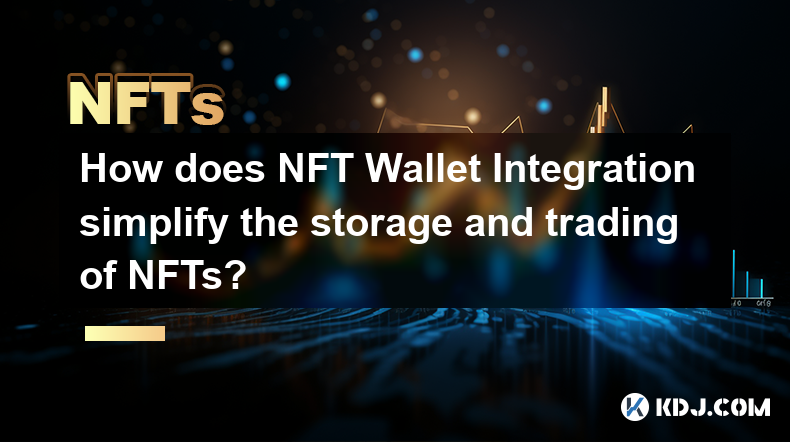
Key Points:
- NFT wallet integration streamlines NFT storage by consolidating all NFTs in one secure location, eliminating the need for multiple platforms.
- Integration simplifies trading by enabling direct buying, selling, and swapping NFTs within the wallet interface, removing the need for third-party marketplaces.
- Security is enhanced through integration with reputable wallets offering robust security features like multi-factor authentication and private key management.
- Accessibility improves as integrated wallets offer user-friendly interfaces, making NFT management easier for both novice and experienced users.
- Integration fosters interoperability between different NFT marketplaces and blockchain networks, providing users with broader access to trading opportunities.
How does NFT Wallet Integration simplify the storage and trading of NFTs?
The increasing popularity of Non-Fungible Tokens (NFTs) has led to a surge in demand for efficient and secure management solutions. NFT wallet integration plays a crucial role in simplifying both the storage and trading aspects of these digital assets. Before the widespread adoption of integrated wallets, managing NFTs often involved juggling multiple platforms and dealing with cumbersome processes. This integration significantly streamlines these processes.
Simplified NFT Storage:
Previously, users might have stored their NFTs across various platforms, each with its own interface and security protocols. This fragmented approach made tracking and managing one's NFT collection a complex and time-consuming task. NFT wallet integration addresses this issue by consolidating all NFTs into a single, secure location within the user's wallet. This centralizes the management of your collection, providing a clear overview and simplified access to all your assets.
Streamlined NFT Trading:
Trading NFTs without wallet integration often involved navigating multiple marketplaces, each with its own listing fees and processes. This created friction and complexity, particularly for users engaging in frequent trading activities. Integrated wallets overcome this limitation by enabling direct buying, selling, and swapping of NFTs within the wallet's interface. This eliminates the need to transfer NFTs between different platforms, speeding up transactions and reducing potential complications.
Enhanced Security:
Security is a paramount concern in the cryptocurrency space, and NFT wallets are no exception. Integrated wallets typically leverage the robust security features of established cryptocurrency wallets, such as multi-factor authentication (MFA), private key management, and hardware wallet integration. This offers a significantly higher level of protection compared to using less secure third-party platforms or individual NFT marketplaces. These enhanced security measures help mitigate the risks of theft or unauthorized access.
Improved Accessibility and User Experience:
Many integrated NFT wallets prioritize user experience by offering intuitive and user-friendly interfaces. This is crucial for attracting both novice and experienced users. The simplified navigation and clear presentation of NFT data make managing a collection significantly easier, regardless of technical expertise. This ease of use is a key factor driving wider adoption of NFTs.
Increased Interoperability:
NFT wallet integration contributes to greater interoperability between different blockchain networks and NFT marketplaces. This means users can access a wider range of NFTs and trading opportunities without being confined to a single platform. This enhanced interoperability fosters a more connected and fluid NFT ecosystem, benefiting both buyers and sellers.
Step-by-Step Guide to Integrating an NFT Wallet:
The process of integrating an NFT wallet varies depending on the specific wallet and platform you are using. However, the general steps often include:
- Choosing a compatible wallet: Research and select a cryptocurrency wallet known for its NFT support and security features.
- Downloading and installing the wallet: Download the wallet application from a reputable source and install it on your device.
- Creating or importing a wallet: Either create a new wallet or import an existing one using your seed phrase or private key.
- Connecting the wallet to NFT marketplaces: Link your wallet to the NFT marketplaces you wish to use for buying, selling, or trading. This usually involves connecting your wallet through a button or similar interface on the marketplace.
- Transferring NFTs: Once connected, you can transfer NFTs from external platforms to your integrated wallet.
Common Questions and Answers:
Q: Are all cryptocurrency wallets compatible with NFTs?
A: No. While many cryptocurrency wallets now support NFTs, not all do. You need to specifically choose a wallet that explicitly advertises NFT compatibility. Check the wallet's features before choosing one.
Q: Is it safe to store NFTs in an integrated wallet?
A: The safety of storing NFTs in an integrated wallet depends heavily on the security of the wallet itself. Reputable wallets with robust security features like multi-factor authentication and private key management are generally considered safe. However, it's crucial to follow best security practices, such as using strong passwords and keeping your seed phrase secure.
Q: Can I trade NFTs across different blockchains using an integrated wallet?
A: The ability to trade NFTs across different blockchains using an integrated wallet depends on the wallet's capabilities and the specific blockchains involved. Some wallets support cross-chain NFT trading, while others may be limited to a single blockchain. Check the wallet's specifications to confirm its cross-chain capabilities.
Q: What are the benefits of using an NFT wallet compared to storing NFTs on a marketplace?
A: Storing NFTs directly on a marketplace can leave them vulnerable if the marketplace experiences issues or is compromised. Using an NFT wallet offers greater control and security over your assets. You also have a centralized location for all your NFTs, making management significantly easier.
Q: What happens if I lose access to my NFT wallet?
A: Losing access to your NFT wallet can result in the permanent loss of your NFTs, especially if you don't have access to your seed phrase or recovery methods. It is crucial to secure your seed phrase and follow best practices for wallet security to prevent this.
Disclaimer:info@kdj.com
The information provided is not trading advice. kdj.com does not assume any responsibility for any investments made based on the information provided in this article. Cryptocurrencies are highly volatile and it is highly recommended that you invest with caution after thorough research!
If you believe that the content used on this website infringes your copyright, please contact us immediately (info@kdj.com) and we will delete it promptly.
- Pepe (PEPE) Weekly Performance Hints At Huge Surge
- 2025-04-07 04:15:13
- XRP Price Tanks 12.8% This Week — More Pain to Come?
- 2025-04-07 04:15:13
- XRP's Funding Rate Has Dropped to Negative 0.012%, a Level Last Seen When the Asset Traded Near $0.33
- 2025-04-07 04:10:13
- A major supply event is coming for the SUI token
- 2025-04-07 04:10:13
- Memecoin DEX PumpSwap Makes a Significant Impact, Attracting 700K Wallets and Facilitating 30M Swaps
- 2025-04-07 04:05:12
- Ronin Network (RON) Has Retraced Heavily This Year
- 2025-04-07 04:05:12
Related knowledge
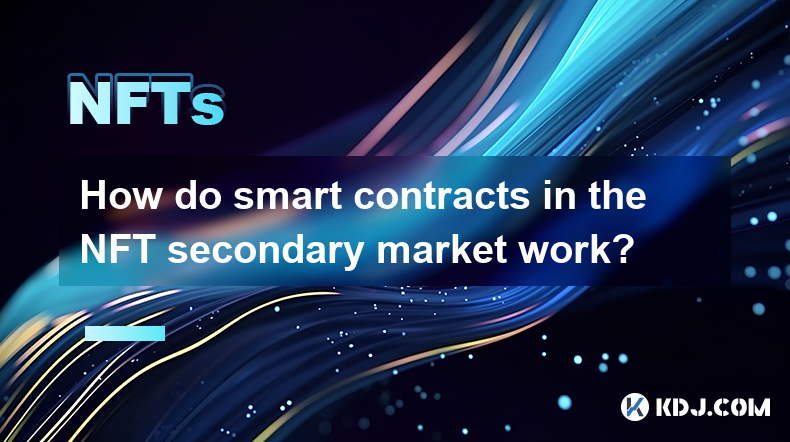
How do smart contracts in the NFT secondary market work?
Apr 03,2025 at 07:14am
Smart contracts play a pivotal role in the NFT secondary market, facilitating seamless transactions and enforcing predefined rules. These self-executing contracts with the terms of the agreement directly written into code are stored on the blockchain. In the context of NFTs, smart contracts automate the buying, selling, and transferring of digital asset...
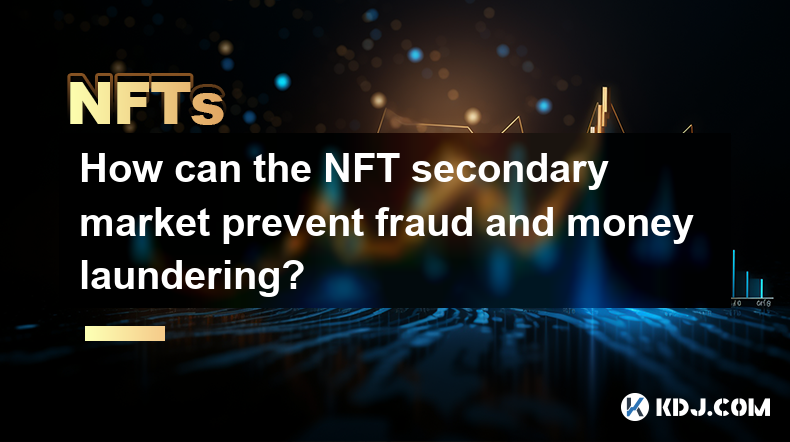
How can the NFT secondary market prevent fraud and money laundering?
Apr 03,2025 at 08:35am
The NFT secondary market has become a thriving hub for digital art and collectibles, but it also faces challenges in preventing fraud and money laundering. To tackle these issues, the market can implement various strategies and technologies to ensure a safer and more transparent trading environment. This article will explore how the NFT secondary market...
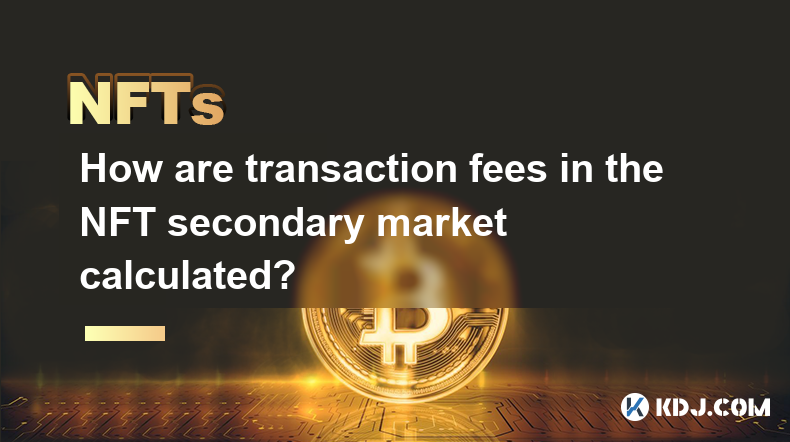
How are transaction fees in the NFT secondary market calculated?
Apr 04,2025 at 05:28am
The calculation of transaction fees in the NFT secondary market is a crucial aspect that both buyers and sellers need to understand. These fees can significantly impact the overall cost of transactions and the profits that sellers can make. In this article, we will delve into the various components that make up these fees, how they are calculated, and w...
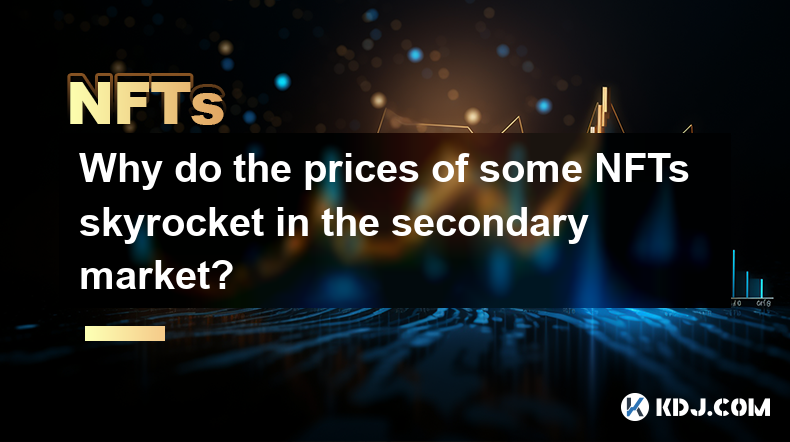
Why do the prices of some NFTs skyrocket in the secondary market?
Apr 06,2025 at 07:08am
The phenomenon of NFT prices skyrocketing in the secondary market is a fascinating aspect of the cryptocurrency and digital art world. Non-Fungible Tokens (NFTs) have taken the digital world by storm, and their value can surge dramatically after initial sales. Several factors contribute to this price surge, including rarity, demand, speculation, and the...
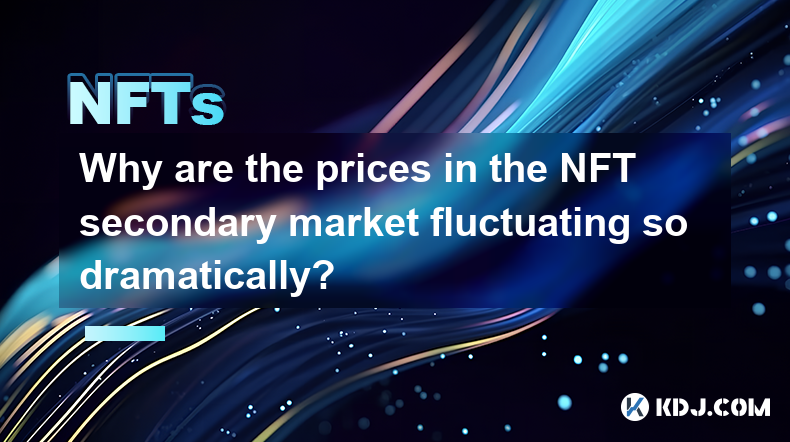
Why are the prices in the NFT secondary market fluctuating so dramatically?
Apr 03,2025 at 10:35pm
The NFT secondary market has been experiencing dramatic price fluctuations, leaving many in the cryptocurrency community puzzled and curious. To understand this phenomenon, it's essential to delve into the factors driving these price movements. From the impact of market sentiment and celebrity endorsements to the role of speculation and the unique natur...
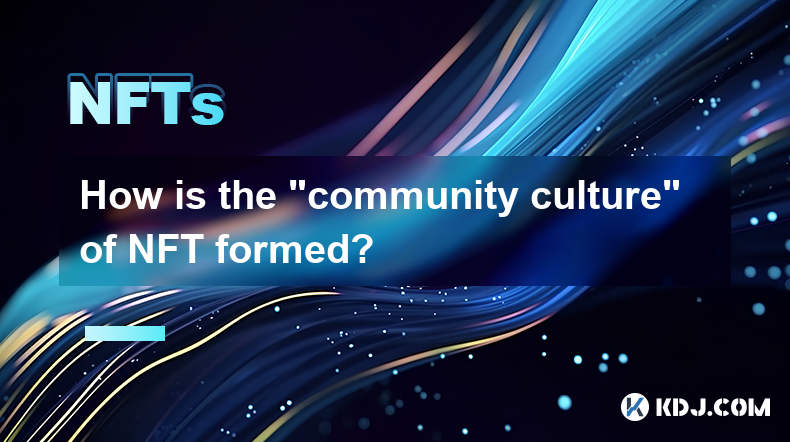
How is the “community culture” of NFT formed?
Apr 03,2025 at 11:07am
The formation of the 'community culture' within the NFT (Non-Fungible Token) space is a fascinating and multi-faceted process. It involves various elements such as shared interests, active engagement, and the creation of a sense of belonging among members. NFT communities often revolve around specific projects or artists, fostering a unique environment ...

How do smart contracts in the NFT secondary market work?
Apr 03,2025 at 07:14am
Smart contracts play a pivotal role in the NFT secondary market, facilitating seamless transactions and enforcing predefined rules. These self-executing contracts with the terms of the agreement directly written into code are stored on the blockchain. In the context of NFTs, smart contracts automate the buying, selling, and transferring of digital asset...

How can the NFT secondary market prevent fraud and money laundering?
Apr 03,2025 at 08:35am
The NFT secondary market has become a thriving hub for digital art and collectibles, but it also faces challenges in preventing fraud and money laundering. To tackle these issues, the market can implement various strategies and technologies to ensure a safer and more transparent trading environment. This article will explore how the NFT secondary market...

How are transaction fees in the NFT secondary market calculated?
Apr 04,2025 at 05:28am
The calculation of transaction fees in the NFT secondary market is a crucial aspect that both buyers and sellers need to understand. These fees can significantly impact the overall cost of transactions and the profits that sellers can make. In this article, we will delve into the various components that make up these fees, how they are calculated, and w...

Why do the prices of some NFTs skyrocket in the secondary market?
Apr 06,2025 at 07:08am
The phenomenon of NFT prices skyrocketing in the secondary market is a fascinating aspect of the cryptocurrency and digital art world. Non-Fungible Tokens (NFTs) have taken the digital world by storm, and their value can surge dramatically after initial sales. Several factors contribute to this price surge, including rarity, demand, speculation, and the...

Why are the prices in the NFT secondary market fluctuating so dramatically?
Apr 03,2025 at 10:35pm
The NFT secondary market has been experiencing dramatic price fluctuations, leaving many in the cryptocurrency community puzzled and curious. To understand this phenomenon, it's essential to delve into the factors driving these price movements. From the impact of market sentiment and celebrity endorsements to the role of speculation and the unique natur...

How is the “community culture” of NFT formed?
Apr 03,2025 at 11:07am
The formation of the 'community culture' within the NFT (Non-Fungible Token) space is a fascinating and multi-faceted process. It involves various elements such as shared interests, active engagement, and the creation of a sense of belonging among members. NFT communities often revolve around specific projects or artists, fostering a unique environment ...
See all articles





















































































